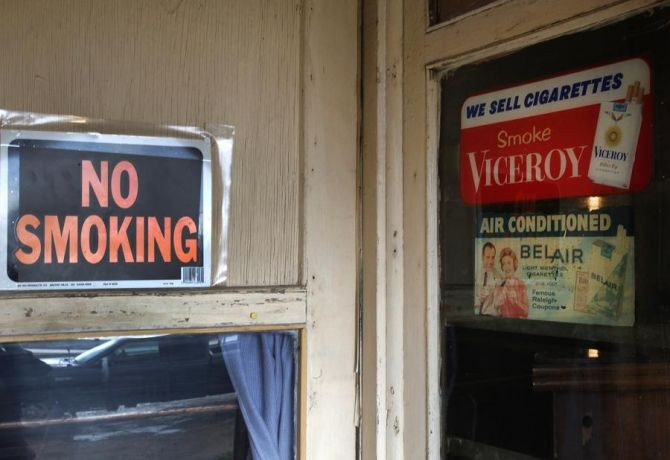Ban on Indoor Smoking Cuts Heart Attack, Stroke Hospitalization

Ban on indoor smoking can lower the incidence of heart attacks and sudden cardiac deaths, reports MedPage Today.
One study, published in the journal Archives of Internal Medicine, found that rate myocardial infarction was 33 percent lower after 18 months after implementation of the smoke-free workplace law than 18 months before the law was implemented.
The rate of sudden cardiac death, too, saw a decline of 17 percent during the same time. However, the rates of obesity, hypertension and diabetes type-2 were either constant or increased during the study period.
"Exposure to second-hand smoke should be considered a modifiable risk factor for MI. All people should avoid second-hand smoke exposure as much as possible, and those with coronary heart disease should have no exposure to second-hand smoke," wrote Richard D. Hurt, MD, of the Nicotine Dependence Center at the Mayo Clinic and colleagues.
Secondhand smoke can cause heart disease, breathing problems, lung cancer and respiratory tract infections, says Medline Plus.
Another study published in the journal Circulation found that ban on smoking in places like restaurants, bars and workplaces, led to a decrease of 15 percent in the rate of hospitalizations due to heart attacks. Similarly, stroke hospitalizations fell by 16 percent and hospitalizations for respiratory diseases went down by 24 percent, reports US Today.
Cigarette manufacturers say that a complete ban on indoor smoking isn't necessary and restaurant owners can make separate arrangements to accommodate people who want to smoke.
"Reasonable ways exist to respect the comfort and choices of both non-smoking and smoking adults. Business owners -- particularly owners of restaurants and bars -- are most familiar with how to accommodate the needs of their patrons and should have the opportunity and flexibility to determine their own smoking policy. The public can then choose whether or not to frequent places where smoking is permitted," said David Sutton, a spokesman for Philip Morris USA, the country's leading cigarette maker, US Today reported.



























